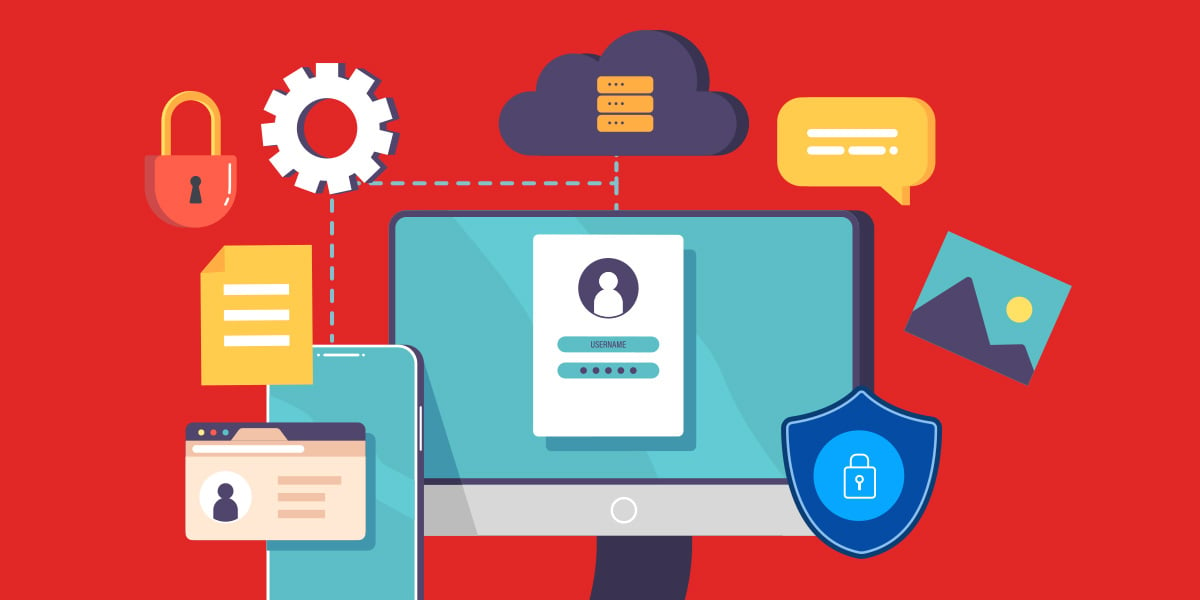Understanding Cybersecurity Impacts for Small Businesses
According to IBM’s 2023 Cost of a Data Breach Report, the average cost of a data breach in companies with less than 500 employees is $3.31 million. But really, while it is a little about the money (that's a lot of money, after all), brands live and die on the reputation they build. The impacts run deep when it comes to a small businesses whether you want to grow or you like your small community. Both are at always at risk.
Cybersecurity is important. But how important is it? Inside threats like CrowdStrike made us consider the ways in which we're not protected. Where are your vulnerabilities? That might be scariest question to find out the answer to.
What exactly does cybersecurity do?
Cybersecurity is a broad term that encompasses all the practices, procedures and tools an organization uses to protect its digital environment from both external and internal attacks.
Every cybersecurity strategy consists of three main components:
- Your people: Unfortunately, most breaches happen because of human error like clicking on phishing emails or improper use of MFA. Proper security training and education for all employees is one of the most effective steps businesses can take to improve their cybersecurity postures.
- Your processes: The bottom line is, in order to be protected, you have to define proactive security steps to catch threats early and resolve them before they can cause severe damage.
- Your technology: Investing in advanced tech tools help speed up your ability to identify and respond to threats. This is where as IT team can be helpful in identifying the right tools that fit your business.
These components will look different for each organization based on the industry, the company size and the nature of work. Regardless of the differences, each piece is critical for a cybersecurity strategy to be effective.
Do small Businesses Need Cybersecurity?
It can be difficult to see why small businesses need to invest in cybersecurity measures when they haven't yet experienced any sort of issue. Especially if you have less than 15 employees. What could they possibly want with you? Well, honestly, hackers don't always do it for the money. They do it for power and the access to sensitive information. Chaos is the name of the game.
In your case, it's better to be proactive than reactive. Here are the top three reasons a strong cybersecurity posture is so important:
1. Defend Your Sensitive Data
Most cyberattacks directly target your company's sensitive data in some way. This is especially true for Healthcare and Financial industries since they deal with highly personal and sensitive information.
For example, the goal in a ransomware attack is to seize specific data and hold it hostage until you pay a high ransom to get it back.
This data can include any of the following:
- Customer and/or employee data (especially your leadership! BEC attacks are at an all time high!)
- Financial information like bank numbers, credit card information, or even invoice #s
- Trade secrets and intellectual property they can use to blackmail you or sell to other companies
- Market research data as well as business and sales plan
- Supply chain management information - they can then interrupt this and use against your for ransom!
The best way to prevent these attacks are training your employees on how to recognize a threat. Unfortunately almost 90% of breaches happen because of human error so educating your employees will be your first defense. Be proactive and then have security measures in place to be reactive to any threats.
2. Prevent Financial Losses
A cyberattack can result in significant losses for organizations of all sizes. Much of this cost is directly related to recovering from the attack.
There are also many indirect losses, such as:
- Reputational damage and loss of customer trust: A serious data breach can make your company seem less trustworthy. Customers trust companies with their personal information, and a data breach can break that trust.
- Cyber insurance premium increases: It's common for companies to see significant increases in their insurance costs following a cyberattack. Additionally, cyber insurance in increasing their requirements for full coverage - so if you end up being attacked, odds are they won't cover you.
Proactively investing time and resources into disaster recovery and incident response planning is still one of the best ways to mitigate these losses.
3. Comply With Government and Industry Regulations
Companies in almost every industry must follow stringent cybersecurity regulations at the government and industry levels in order to operate legally. For example, health care organizations must collect and store patient health data in accordance with the Health Insurance Portability and Accountability Act (HIPAA). Failure to comply with these standards often costs companies hefty losses in fines and other penalties. A comprehensive cybersecurity strategy is essential for adhering to compliance requirements.
Additionally, there are levels of cybersecurity insurance you must deploy across your company. But be careful, some elements of cybersecurity insurance aren't covered like you think they are. Make sure you're up to date with your policies and protections! If you're unsure what your plan says or how it operates, give us a call. We're happy to walk you through the process and paperwork (because we know there are a LOT of papers in that contract you just signed).
how to protect your business from cyber attacks
When it comes to cybersecurity strategies, you have two choices:
- Figure it out by yourself.
- Hire experienced IT professionals to help you.
Protect your data by working with a trusted IT solutions provider that knows how to fight off threats to your infrastructure. Contact us today for more information about how our IT services can help you keep your business safe.





